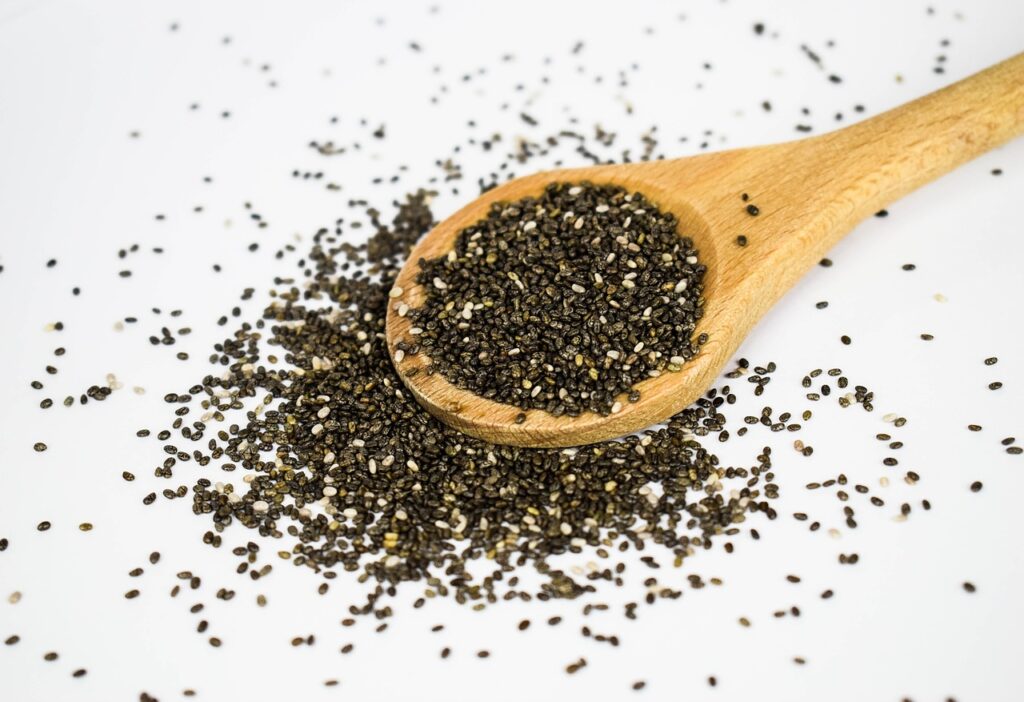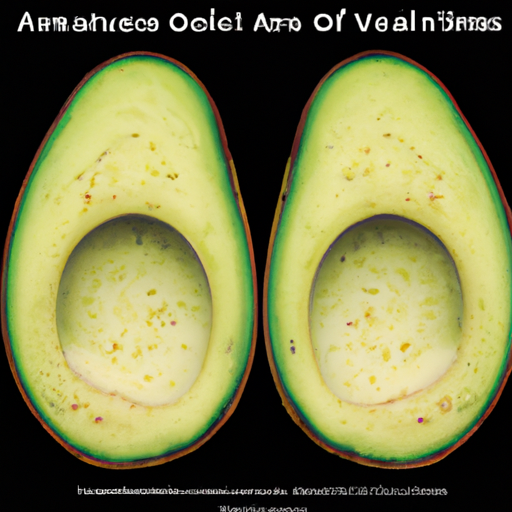Avocados: Improving Heart Health and More is an informative article that highlights the various health benefits of avocados. Bursting with healthy fats and essential nutrients, avocados are not only delicious but also proficient in promoting heart health. They can positively impact cholesterol levels and reduce the risk of certain types of cancer. Additionally, avocados can aid in managing diabetes by improving blood glucose levels. These versatile fruits also have benefits for skin health, weight management, gut health, and overall nutrition. Whether you’re looking to improve your health or maintain a balanced diet, avocados are an excellent addition to your daily meals.

Avocados and Heart Health
Avocados are often praised for their heart-healthy properties, and for good reason. Incorporating avocados into your diet can have a positive impact on cholesterol levels and help prevent heart disease.
Avocados and Lowering Cholesterol Levels
Avocados are rich in monounsaturated fats, which have been found to help lower levels of LDL (bad) cholesterol. High levels of LDL cholesterol can increase the risk of heart disease and stroke. By replacing foods high in saturated fats with avocado, you can lower your LDL cholesterol and improve your heart health.
The Role of Avocados in Preventing Heart Disease
In addition to lowering cholesterol levels, avocados contain other important nutrients that contribute to heart health. They are a good source of potassium, which helps regulate blood pressure and prevent heart disease. Avocados also provide dietary fiber, which can help lower cholesterol levels and reduce the risk of heart disease.
Avocado Consumption and Blood Pressure Regulation
High blood pressure is another risk factor for heart disease. The potassium content in avocados plays a crucial role in regulating blood pressure. Potassium helps relax blood vessels, improving blood flow and reducing the strain on the heart. By including avocados in your diet, you can support healthy blood pressure levels and reduce the risk of developing heart disease.
Avocados and Cancer Prevention
Avocados are not only delicious, but they also have potential anticancer properties that may help reduce the risk of certain cancers.
The Anticancer Properties of Avocados
Avocados are rich in antioxidants, which are compounds that help protect cells from damage caused by free radicals. Free radicals can contribute to the development of cancer by damaging DNA and other cellular structures. The antioxidants found in avocados, such as carotenoids and tocopherols, can help neutralize these free radicals and reduce the risk of cancer.
Avocado Consumption and Reduced Risk of Certain Cancers
Studies have shown that regular avocado consumption may help reduce the risk of certain types of cancer, including prostate, breast, and colon cancer. The specific compounds in avocados that contribute to this protective effect are still being studied, but the preliminary research is promising. Including avocados in your diet can be a simple and tasty way to support your overall health and lower your risk of cancer.

Avocados and Blood Glucose Levels
Maintaining stable blood sugar levels is crucial for overall health, especially for individuals with diabetes or those at risk of developing the condition. Incorporating avocados into your diet can help regulate blood glucose levels.
How Avocados Impact Blood Glucose Regulation
Avocados have a low glycemic index, which means they have a minimal impact on blood sugar levels. The monounsaturated fats and dietary fiber found in avocados can slow down the digestion and absorption of carbohydrates, leading to more stable blood glucose levels. This can be particularly beneficial for individuals with diabetes or those trying to prevent the development of the condition.
Avocado Consumption and Diabetes Management
The unique nutritional profile of avocados makes them an excellent choice for individuals with diabetes. The monounsaturated fats in avocados can improve insulin sensitivity, allowing cells to better utilize glucose for energy. Additionally, the fiber content in avocados helps regulate blood sugar levels and promotes a feeling of fullness, which can aid in maintaining a healthy weight. Including avocados in your diabetes management plan can have positive effects on both blood glucose control and overall health.
Avocados and Skin Health
Your skin is the largest organ in your body, and taking care of it is essential. Avocados can contribute to healthy skin by improving elasticity and reducing the appearance of wrinkles.
The Effect of Avocados on Skin Elasticity
Avocados are packed with vitamins and antioxidants that can have a positive impact on your skin’s elasticity. The high levels of vitamin C and vitamin E found in avocados promote collagen production, which is essential for maintaining skin elasticity. Collagen helps keep your skin firm and supple, reducing the appearance of fine lines and wrinkles.
Avocado Consumption and Wrinkle Reduction
The antioxidants present in avocados, such as vitamin C and lutein, can help protect your skin against damage caused by free radicals and sun exposure. This can result in a reduction in the appearance of wrinkles and a more youthful complexion. Including avocados in your diet can support skin health from the inside out, providing your body with the necessary nutrients to maintain a vibrant and healthy complexion.

Avocados and Weight Management
If you’re looking to manage your weight, avocados can be a valuable addition to your diet. They can help promote feelings of fullness and support weight loss efforts.
Avocado’s Role in Promoting Feelings of Fullness
Avocados are rich in dietary fiber and healthy fats, both of which contribute to a feeling of fullness and satisfaction after eating. When you incorporate avocados into your meals, you’re likely to feel more satisfied and may be less prone to overeating. The combination of fiber and healthy fats in avocados helps slow down digestion, keeping you feeling full for longer periods and reducing the desire to snack on unhealthy foods.
Avocado Consumption and Weight Loss
Including avocados in a balanced and calorie-controlled diet can support weight loss efforts. The healthy fats in avocados provide a source of energy and can help regulate hunger cues, making it easier to stick to a healthy eating plan. Despite being higher in calories compared to some other fruits and vegetables, the nutritional benefits of avocados, along with their ability to promote satiety, make them a valuable tool for weight management.
Avocados and Gut Health
The health of your gut is closely linked to various aspects of your overall wellness. Avocados can have a positive impact on gut health by influencing the composition and function of the microbiome.
Avocado’s Impact on the Microbiome
The microbiome refers to the trillions of microorganisms that inhabit your gut. A diverse and balanced microbiome is essential for optimal digestion, nutrient absorption, and immune function. Avocados contain a type of fiber called prebiotics, which serve as food for beneficial bacteria in the gut. By consuming avocados, you can nourish and support the growth of these beneficial bacteria, promoting a healthy microbiome.
The Benefits of Avocados for Gut Health
The prebiotic fibers in avocados, such as inulin, can help increase the abundance of beneficial bacteria like Bifidobacteria and Lactobacillus. These bacteria play a crucial role in maintaining a healthy gut environment and can have various benefits, including improved digestion, enhanced nutrient absorption, and strengthened immune function. Including avocados in your diet can contribute to a thriving gut microbiome and support overall gut health.

Avocados in Daily Nutrition
Avocados are not just a trendy food; they offer a range of essential nutrients that can support your overall nutrition and help maintain a balanced diet.
Avocado’s Nutritional Value
Avocados are a nutrient-dense fruit, packed with vitamins, minerals, and beneficial plant compounds. They are an excellent source of healthy monounsaturated fats, which are essential for brain health and play a role in various bodily functions. Avocados also provide vitamins C, E, K, and B-6, as well as folate, potassium, and dietary fiber. Incorporating avocados into your daily nutrition can help ensure you’re getting a wide range of essential nutrients.
Avocado Consumption for a Balanced Diet
Including avocados as part of a balanced diet can enhance the nutritional quality of your meals. Whether sliced on whole-grain toast, added to salads, or used as a replacement for less healthy fats, avocados can provide a nutrient boost to your meals. They are versatile and can be incorporated into a variety of recipes, making them a convenient and delicious addition to your daily nutrition.
The Importance of Avocado in Family Nutrition
Avocados can be a valuable addition to family nutrition. Their creamy texture and mild flavor make them appealing to children, while their nutritional benefits offer peace of mind for parents. Avocados can be included in family meals and snacks, such as smoothies, sandwiches, and dips. By introducing avocados to your family’s diet, you can ensure that everyone is receiving the essential nutrients needed for healthy growth and development.
In conclusion, avocados offer a myriad of health benefits across various aspects of well-being. From their positive impact on heart health, cancer prevention properties, and regulation of blood glucose levels, to their benefits for skin health, weight management, and gut health, avocados are truly a versatile and nutritious fruit. Including avocados in your daily nutrition can enhance your overall well-being and contribute to a balanced and healthy lifestyle. So why not indulge in the creamy goodness of avocados and reap their numerous health benefits? Your body will thank you!



